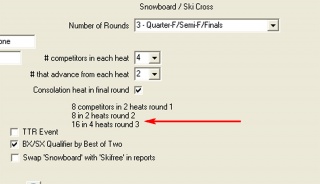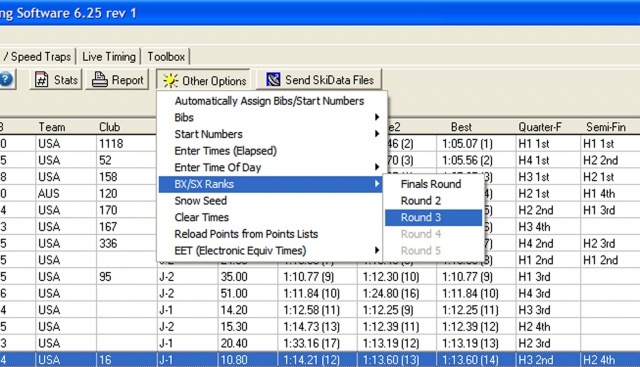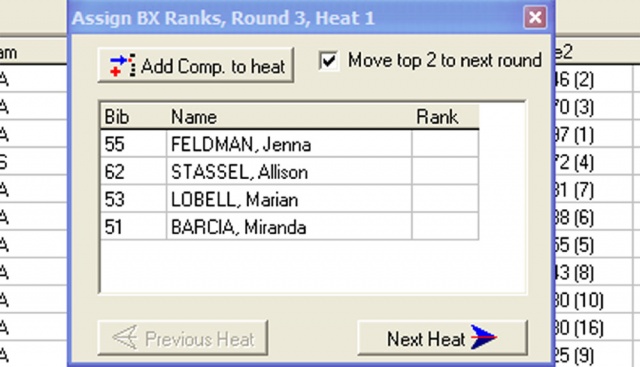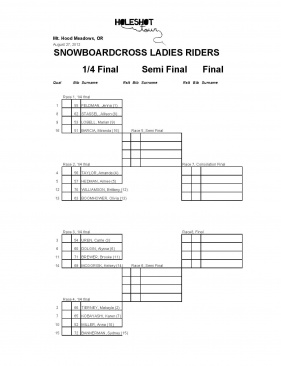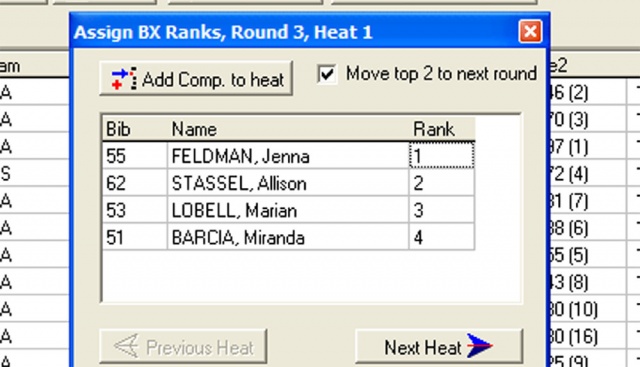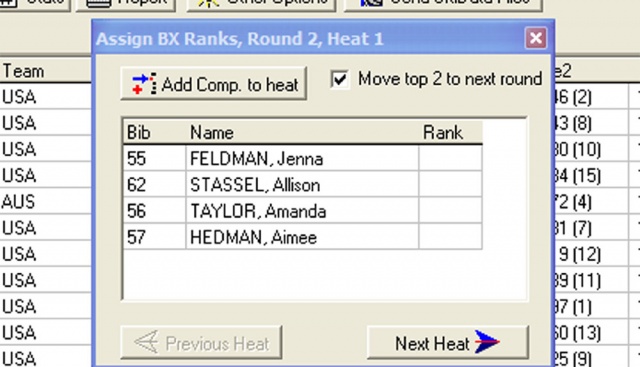Timing and Scoring a Ski or Snowboardcross
Timing and Scoring a Snowboardcross
The procedure described below is for timing/scoring FIS level snowboardcross events. Note: FIS skicorss events can also utilize SplitSecond. Specific rules for each discipline can be found in their respective FIS ICRs.
Where to start:
The most important detail is what type of qualifying will be used and how many athletes will advance to finals. These are the currently approved FIS qualifying formats:
a) Qualification - One Run: -- all competitors take one(1) timed run.
b) Qualification - Two Runs -- all competitors take two (2) timed runs - the
best time one (1) run out of two runs timed runs determines the qualification ranking
c) Jam Session (Formula 1) Qualification -- unlimited runs all competitors have unlimited runs in a fixed time period - the best time one (1) run out of this timed runs determine the qualification ranking.
- Enter all the athletes as described in the Competitors section.
- Generate a Current Points List for the Team Captains to review by selecting 'Points List' on the Report button of the Competitors screen.
- Once roll call has been approved during the Team Captains meeting, use the software to randomize the entire field
- National_FIS_Software_:_Competitors_Sort#Only_Random_Sort_Once.21
- Only randomize ONCE!
- Generate a Start List
Timing
Timing qualification must meet the same requirements as timing an Alpine ski race. Please refer to the current Alpine Timing booklet and Alpine ICR for details. However, it is critical that the tabulation of the final brackets be practiced well in advance of your event to ensure that you understand how an SBX is run and how the software scores the advancing brackets.
Once all the athletes have completed their run based on the format chosen above, generate a Qualifying Result Report.Competitors
In this example, we are using the best of two runs format with 16 athletes advancing to the finals.
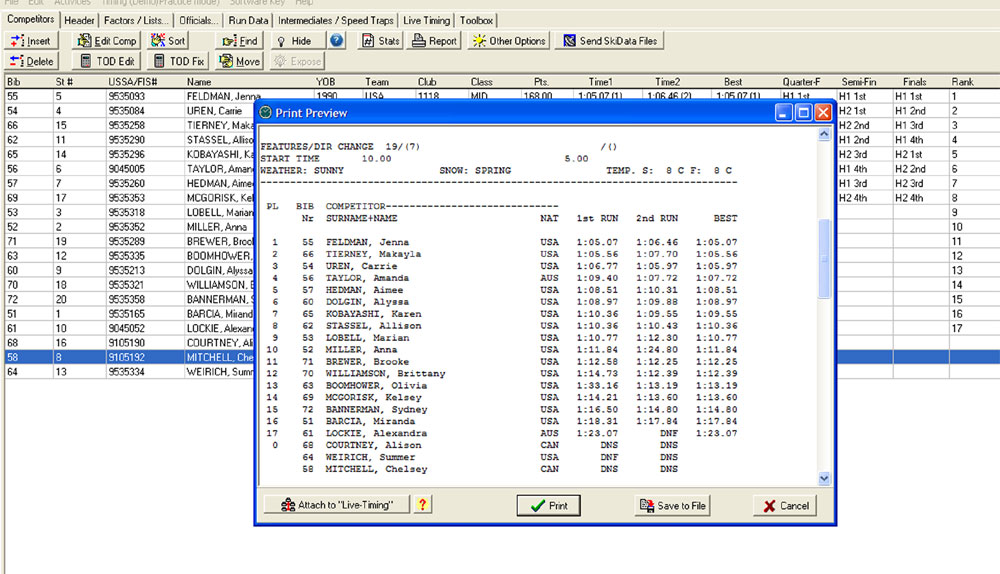
Under the Header page, make sure that the number of rounds, # of competitors in each heat, and # that advance from each round as well as whether or not there is a consolation (small) final. The total number of athletes in the finals round should match what was agreed upon by the jury. This is visible below the consolation check box.
Advancing qualified athletes to brackets
From the first step above, verify the number of athletes that have advanced to finals. Verify that there is not a tie for the last qualifying position. If there is a tie, those athletes must compete in a runoff, so it it better to grab them before they leave the venue.
Add athletes to heats
From the Competitors/Other Options Tab Competitors, select BX/SX Ranks, then select the highest round.
Then manually add the athletes based on seeding rules. For a bracket of 16, the first heat will have athletes ranked 1, 8, 9, 16. (See current FIS ICR Section 2706 for snowboardcross heat seeding). In this example, Heat 1 will have Racer 55, 62, 53, and 61 (see results above). Click the add competitor button and type in each number for that heat, then move to the next heat. DO NOT TYPE ANYTHING IN THE RANK COLUMN.
Once all of the heats have been entered, generate a Boarder X Heats report or use your favorite Excel bracket program to generate paper brackets for your jury to score the event as it progresses. At this point, the Excel brackets are a bit easier to use on hill. They can typically be printed to fit on one page with the subsequent brackets remaining empty so that officials can write in advancers.
IMPORTANT NOTE: Before adding athletes to the heats, make sure that your competitor screen is sorted by qualifying result so that subsequent heats will be sorted based on qualifying time to ensure proper lane choice.
Advancing riders to subsequent brackets
As riders cross the finish line, type the rank for that heat into the rank column. This will drive the brackets forward to subsequent heats.
So looking forward to Race #5 (Round 2, Heat 1 in the software), you will see the advancers from Heat 1 and 2.
Continue until the heats are complete.
Generate Results
Generate results from the Competitors Report screen.
